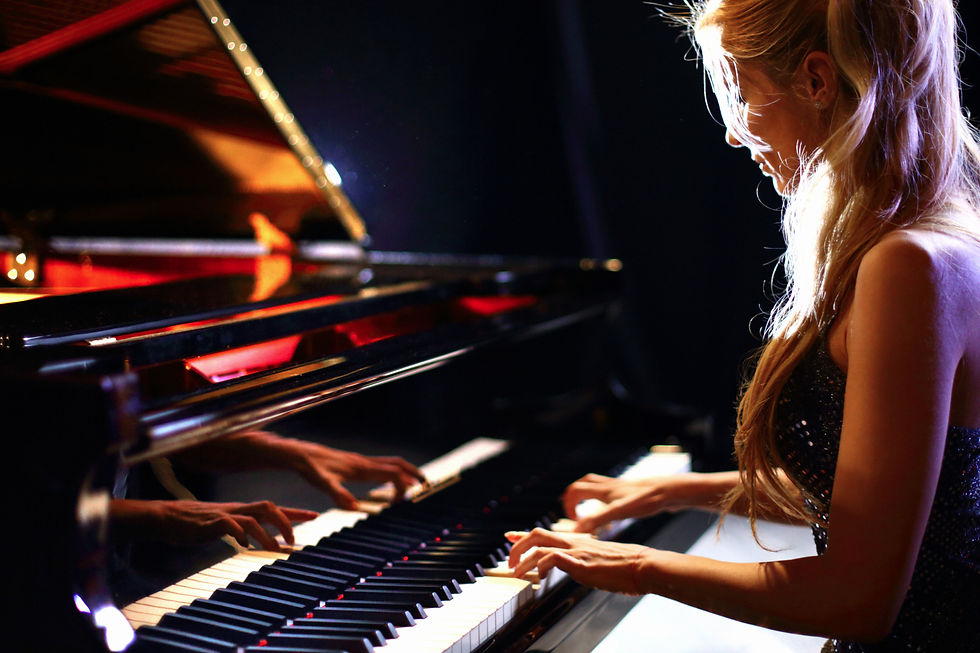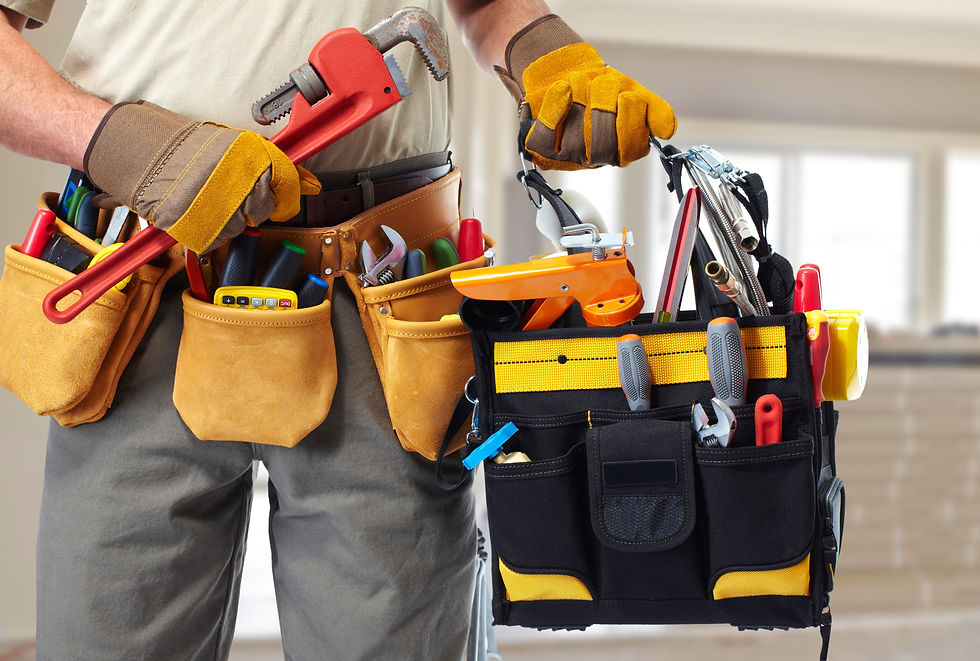Performing
- Hailey Willis
- Jan 15, 2024
- 5 min read

Most of the time, music is a lone pursuit. You practice by yourself, you learn by yourself if you don't have a teacher. This solitude might be suitable and appealing to musicians, but they can't get around performing. Love it or dread it, it comes. And with it, those butterflies and trembling fingers we know so well.
There is a joy that I get only from performing. At last I am sharing my music with the world, hopefully blessing others. I get to share my love of the song (or songs) with others, but relish the smile on their face.
But like so many others, I have terrible stage fright. Days before, I might not feel anything, but when I stand up to mount the stage, my legs tremble and my knees knock together. When I sit at the piano, it takes some awkward shuffling to get situated, and my fingers shake so bad I can hardly position them on the keys. My hands feel limp.
Thankfully, after more than ten years of playing and performing (mostly at recitals, but I have played preludes at church and as background music for a wedding reception), I have finally found a few tricks that lessen my anxiety.
1: Plan Ahead
Okay, I hear what you're saying. You've been told this over and over again. But have you been told what to plan ahead, exactly? Usually I get a vague: "clothing, song, setting." This is all well and good, and this is exactly what I mean by planning ahead, but people rarely tell you what about these items to plan ahead. So here's what I keep in mind:
Clothing. Find out if this is a formal event, so wear something church-worthy. A dress, a blouse with a skirt, jeans with a blouse, jeans with a sweater, etc. When I performed a song at my church's annual ladies' tea, I wore a cable-knit, green sweater with blue jeans. For a formal touch, I did my hair in an updo accented with small fake flowers and wore boots. If it was warmer, I would have worn a dress instead of a sweater and jeans. Also take into consideration your level of comfort. Do not wear a shirt that restrains your movement, especially at the elbows. You need to be able to move around when you play. With skirts, make sure they don't ride up your legs, so your bare skin sticks to the bench. That has happened to me before, and it's not pleasant! For shoes, wear ones you're able to use the pedal with ease. Try practicing your song while wearing your shoes of choice to see if you're really able to play with them on.
Song. I have played both with and without music, and I have to say I prefer memorizing my songs. Not only do you free yourself from turning all those pages, but you're able t concentrate on the song itself, letting it flow from you naturally and free. Do not practice your song too often. You can overkill. I usually practice my chosen song once a day, or every other day after I've mastered it. That way, I can keep it polished without starting to trip up on it. If you're playing with sheet music, be sure to find a page-turner. Nothing is more anxiety provoking than trying to handle eighth notes in one hand, dropping crazy chords in the other, reaching your hand up to your face level, turning the page without tearing out the page or pulling the book off the stand, and finding your place again. All that said, find a page-turner! A day or so before the performance, meet up with them and practice playing while they turn pages. Tweak your signals. For instance, I naturally move with the music, and nod at satisfying chords, so I had to nod UP instead of down. Sweeping my head to the side was too distracting for me. Be sure the page-turner can read music, so they can get ready when you get close.
Setting. Where will your performance be? A church? A concert hall? A home? Indoor or outdoor? (I've never seen an outdoor performance, but you never know) Be prepared for whatever the setting might be, like a hot room, even though it might be cold outside. Always dress so that you can add or remove layers, for the maximum comfort.
2: Keep the Right Perspectives
Judgement. That's what we secretly fear most, isn't it? A fear of failing, of messing up. Each wrong note eats away at our nerves. This is what we dread most from strangers:
Why do we feel this way? Afterall, we might never interact with those people again. The anxiety that stems from this fear does stifle us. But it doesn't have to. We are here to bless others with our music. We put our hearts into what we do, and if someone doesn't appreciate it or judges you based on what you do, it's all on them, not you. You tried your best, and that's what counts. Your success is not based on what others think. It's based on whether you tried or not.
Now for a little secret. Lean closer so I can whisper in your ear. Americans have poor listening habits. They won't notice if you mess up as long as you keep going. I've had performances where I'm beating myself up afterwords, while people come by to tell me, "That was amazing! So beautiful!" They never saw how I struggled with the hard-touch piano or took thought of my trembling hands. Real story.
Remember, keep the right perspectives. It's not about what others may think. It's the magic we share.
3: Pray and Breathe
Prayer changes everything. It allows us to trust God in whatever may happen, and gives us the strength and courage to do what He has given us to do. I may be quaking before a performance, but when i pray, I remind myself that God will bless my efforts. He is in control, and only His opinion of me is what matters. And guess what? He calls you child, cherished, loved. Your mistakes do not lessen His love for you. Remember that, and pray. You will see God's strength brighten your music as you play for others. It will keep your perspectives right, too.
And don't remember to breathe! When we are stressed, our hearts beat faster, our breaths come quick and shallow. I like to box-breathe before I sit at the piano. It only takes sixteen seconds, and it lowers your anxiety levels drastically. You can move more freely, instead of being tense and stiff. It's the stiffness that shows you're nervous. The shaking hands do, too, but the stiffness accents it. Let yourself relax, focus on the music, and let it flow from you. You, and your audience, we greater benefit from it.
Conclusion
There you have it! My top three points to aid your performances! Playing in front of others doesn't have to be a frightening experience.
Musicians, do you have any tips to battle stage fright? Let me know in the comments, and happy playing!


